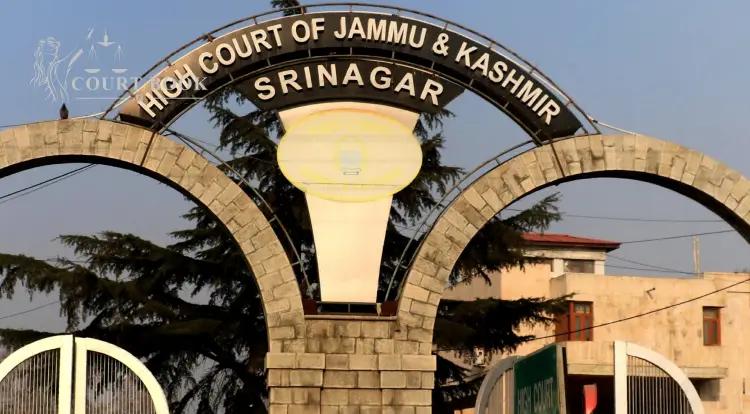The Jammu and Kashmir and Ladakh High Court has reinforced that the role of a Registering Officer is strictly administrative and does not extend to assessing the title or any irregularities in a document. The ruling, delivered by Justice Wasim Sadiq Nargal, highlights that under the Registration Act and its rules, a Registering Officer is only responsible for registering documents that comply with the necessary legal formalities.
The court firmly stated:
“As per the mandate of the Registration Act and Rules formed thereunder, the role of the Registering Officer is limited to registering the document if it is accompanied by supporting documents, and he/she is not expected to evaluate the title or irregularity in the document.”
Read also:J&K And Ladakh High Court Implements Supreme Court's SOPs on Government Officials’ Court Appearances
The Case of Santosha Devi
The case involved a petition filed by Santosha Devi, a 63-year-old resident of Kishtwar, who sought the court’s intervention after authorities refused to register a Will Deed she had executed. The petitioner had submitted the document to the Sub-Registrar (ACR), Kishtwar, along with the required fee. However, the Sub-Registrar refused to register the document, citing an inability to read Urdu and marking the document as "not readable."
Feeling aggrieved by this decision, the petitioner appealed to the Registrar (ADC), Kishtwar, who conducted an inquiry, recorded her statement, and directed the registration of the Will Deed. However, despite this order, the document remained unregistered, allegedly due to interference from relatives of the petitioner's brother, with whom she had disputes.
When the petitioner approached the High Court, the court issued a directive on May 29, 2023, instructing her to re-submit the document to the Registrar, Kishtwar, and ordered its registration within ten days. The respondents, however, claimed that the documents attached to the Will Deed were unclear, causing further delays. Eventually, after the court's intervention, the Will Deed was finally registered on June 24, 2023, by the Sub-Registrar.
During the proceedings, the petitioner's counsel, Advocate R. Koul, acknowledged that while the issue had been resolved, the petitioner had faced unnecessary hardships due to bureaucratic inaction.
Court’s Observations on Registering Officers' Role
The High Court emphasized that the Registering Officer’s function is purely administrative, not quasi-judicial. Their duty is to register documents as long as they fulfill statutory requirements, and they cannot adjudicate on the title of the executor.
The court further stressed:
“Sub-Registrars have a specific mandate under the Registration Act, 1908, and revenue laws. They are obligated to discharge their statutory duties diligently with a citizen-centric approach to ensure transparent document registration services, a harbinger of Digital Governance across J&K.”
Government Guidelines for Registration Process
The court also noted that a Government Order had already been issued on the matter, providing a checklist for document scrutiny during registration. This order mandates that deficiencies should not be pointed out in a piecemeal manner, as it causes undue hardship to citizens and undermines the efficiency of the National Generic Document Registration System (NGDRS).
Read also:Jammu & Kashmir High Court Clarifies MCI Guidelines on Non-Medical Faculty Appointments
“The Revenue Officers must provide accurate inputs as per the requirement to ensure that the registration process does not suffer from infirmities or aberrations.”
Key Takeaways from the Judgment
- Limited Role of Registering Officers: Their function is strictly administrative—they cannot question the title validity or irregularities in a document.
- Citizen-Centric Approach: The court emphasized the need for efficiency and transparency in the document registration process.
- Bureaucratic Inaction Highlighted: The case exposed how delays and unnecessary procedural hurdles create difficulties for citizens.
- Government Checklist for Registration: Officers must follow uniform guidelines and avoid unnecessary delays by raising objections piecemeal.
- Digital Governance for Transparency: The ruling aligns with the broader goal of streamlined, efficient online registration services in J&K.
Case Title: Santosha Devi Vs UT Of J&K














